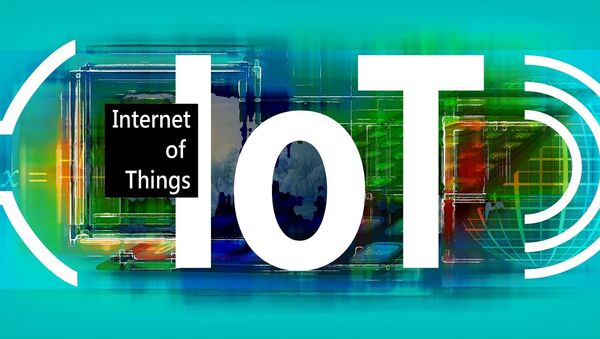The opposition party of the Netherlands, the Democrats 66 (D66) party, is on a cybersecurity crusade.
They claim these devices, which are referred to as Internet ff Things (IoT) devices — but which the Dutch MPs have decided to describe more colorfuly as "Internet of S**t" devices — are collecting, and even selling users' personal information "without explicit permission or without consumer choice."
In Mr. Verhoeven's paper (here in Dutch), he argues that with "locks, bridges, factories, teddy bears, toothbrushes, thermostats, refrigerators, CAT scanners, watches and heart rate monitors" connected to the Internet, security can't be left to consumers.
The D66 party are seeking support not just within their own country but from the bureaucratic power of the EU.
Mr. Verhoeven's digital security initiative, is also pushing for the Netherlands to consider making tech companies legally responsible for insecure software, as part of a national cybersecurity center.
please no pic.twitter.com/7R7G2KI8gs
— Internet of Shit (@internetofshit) November 21, 2016
Mr. Verhoeven's report called insecure software "a form of negligence" and that "the government should investigate the best way to control software liability."
It comes after a market research firm IDTechEx, recently published a report, which suggested that tech companies are not being honest with consumers about IoT.
The IDTechEx IoT report said that although companies are spending billions of dollars on IoT on an annual basis, the concept is mostly just hype. The report claims that tech companies are pushing their IoT devices on a largely luke-warm market.
Internet of Things (IoT) 2017-2027: IDTechEx https://t.co/RICtqMPTtX
— CIO Business News (@JFECIOTopNews) November 2, 2016
However, many people do own IoT devices, some perhaps without realising that such devices are vulnerable to being hacked.
One recent high-profile hacking incident involving IoT, happened in September, to the website of prominent security blogger Brian Krebs.
Using a massive network of 152,463 hacked cameras and other IoT enabled devices, Mr. Krebs's website was subjected to a cyber attack, described at the time as one of the biggest ever distributed denial of service (DDoS) attacks in Internet history.
Many cybercrime experts agree that there is a need to better educate the public about IoT.
And in Holland, those like Mr. Verhoeven, believe that governments should also be involved in insisting on more stringent security safeguards to help prevent such hacking incidents.
With poor password security in many IoT, it can currently be difficult for consumers to be able to turn off unwanted data transfers from their devices.
why don't we put internet in an oven? well… https://t.co/l5M6Vel8SW pic.twitter.com/bA487mLP3Q
— Internet of Shit (@internetofshit) November 21, 2016
The Dutch "Internet of S**t" proposal is calling for consumer electronics to have certification standards for devices, covering things like encryption, requirements for default passwords, software patches, security alerts, and user instructions.
And to better inform the public if their devices have been involved in data loss or another cyberattack, Mr. Verhoeven is also calling for an EU-wide public register of vulnerabilities and breaches.
In the meantime, tech innovators continue to devise new, and at time banal, ways to help technology take over even more basic tasks in life.





